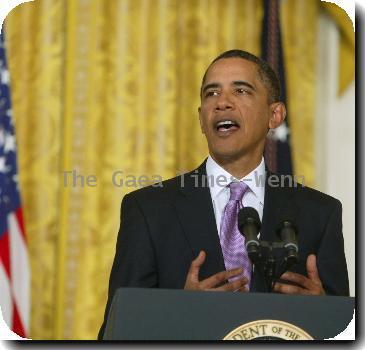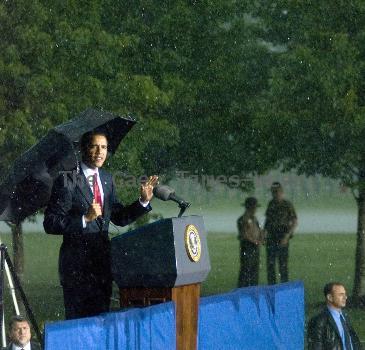Mercury astronaut John Glenn: Keep space shuttles flying until replacement is ready to launch
By Marcia Dunn, APMonday, June 21, 2010
John Glenn: Keep space shuttles flying
CAPE CANAVERAL, Fla. — Mercury astronaut John Glenn wants NASA’s space shuttles to keep flying until a reliable replacement is ready, no matter how long it takes.
Glenn joined the national debate Monday over America’s future in space and became the latest ex-astronaut to speak out on the matter. He issued a nine-page statement in which he questioned the decision to retire the shuttle fleet and rely on Russia to take astronauts to the International Space Station.
“We have a vehicle here, why throw it away? It’s working well,” the first American to orbit Earth said in a telephone interview with The Associated Press.
Glenn said he’s against paying the Russians $55.8 million per person to fly U.S. astronauts to the space station and back. That’s the price for a single ticket starting in 2013; right now, it’s costing NASA $26.3 million and will jump to $51 million next year.
Glenn doesn’t believe the general public realizes what’s happening on the space front.
“Going to Russia and being, in effect, under control of Russia for our space program just doesn’t sit right with me and I don’t think it sits well with the American people, or won’t, either,” said Glenn, a former U.S. senator who rode the shuttle into orbit in 1998 at age 77. He turns 89 next month.
Glenn said little if any money will be saved by canceling the shuttle program, considering all the millions of dollars going to Russia for rocket rides. At least two shuttle flights a year could keep the station going and the work force employed, until something new comes along, he said.
The former astronaut wonders what will happen if there’s an accident and Soyuz rockets are grounded. He supposes the space station — a $100 billion investment — would have to be abandoned. He also worries scientific research at the station will take a hit if experiments have to be launched from Russia and have no way of getting back to Earth in bulk.
Only two shuttle missions remain on the official lineup; the second almost certainly will be delayed into early next year. NASA is hoping the White House will add an extra flight next summer before ending the 30-year shuttle program.
Glenn supports President Barack Obama’s plan, announced earlier this year, to keep the space station going until 2020 and to give up on a moon base for now. But the original Mercury 7 astronaut said the nation needs a rocketship capable of lifting heavy payloads — whether it’s part of NASA’s Constellation program or something else — if astronauts are ever to reach asteroids and Mars.
Private companies, meanwhile, interested in carrying astronauts back and forth to the space station need to first prove their capability and reliability, Glenn noted. “I’m very leery of this rush to commercialization,” he said.
Glenn — a Democrat — said he waited to go public because he thought “people would see the wisdom” of keeping the shuttle going.
“If we’re going to do anything, if has to be done pretty quick,” he said.
Online:
John Glenn School of Public Affairs: glennschool.osu.edu/news/space.html
Tags: Barack Obama, Cape Canaveral, Eastern Europe, Europe, Florida, North America, Russia, United States



